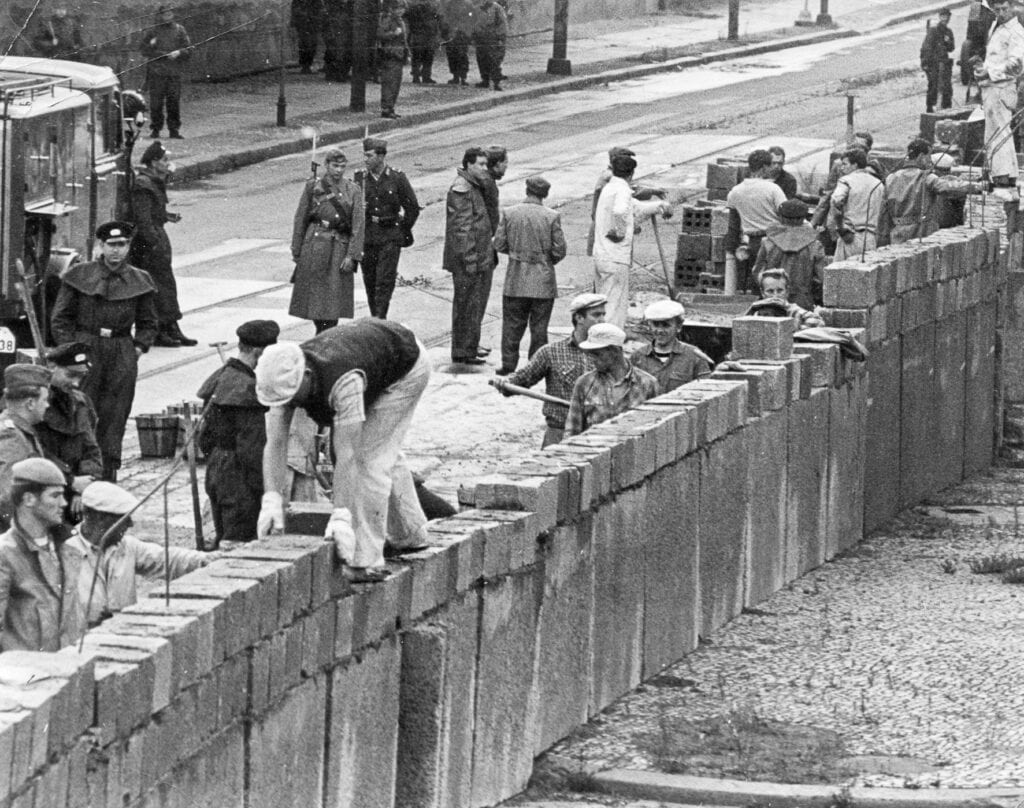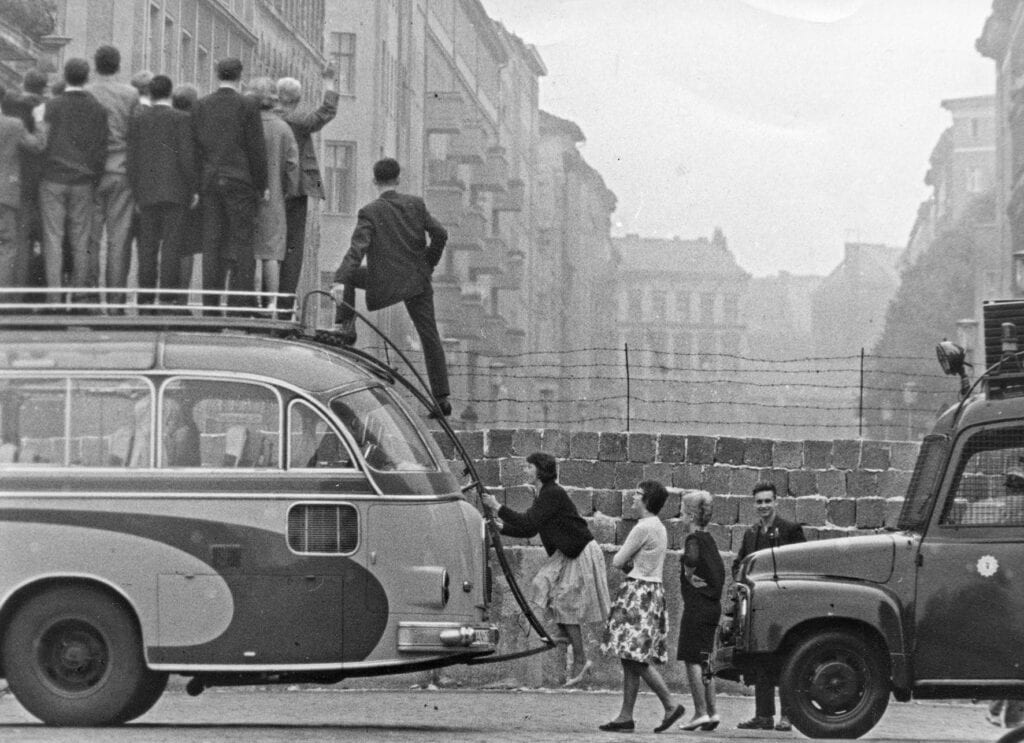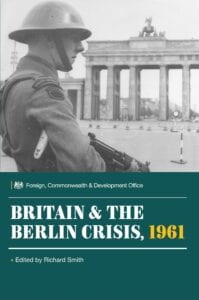Sixty years ago simmering Cold-War tensions were dramatically brought to a head in Berlin. A new volume of documents from the FCDO Historians tells how Britain responded to the crisis brought about by the construction of the Berlin Wall.

In the early hours of Sunday 13 August 1961, Brigadier L.F. Richards of the British military police in Berlin, was woken from his sleep by a patrol who reported unusual activity along the border. Driving to the Brandenburg Gate, he saw the border between East and West Berlin "being blocked off with concrete and barbed wire, and columns of vehicles unloading police, soldiers and engineering stores "as far as the eye could see".
Crossing into East Berlin, he found a scene of intense activity. "I could feel considerable tension’, he recalled. ‘There were uniformed men everywhere, all heavily armed. Almost every open space of ground had military vehicles of one sort or another on it." The main roads "were jammed; packed with military vehicles including armoured vehicles and a lot of transport vehicles carrying barbed wire and other materials". The few civilians he saw in East Berlin seemed "bewildered and apprehensive".
He was witnessing the erection of the Berlin Wall, dividing the Soviet sector in the east from the British, French and American sectors in the west. It became the most visible symbol of the Cold War and the division of Europe until it was breached dramatically on the night of 9 November 1989.

The construction of the Berlin Wall was the culmination of a long running crisis over the question of the city’s status. The democratic and increasingly prosperous West German state drew a steady flow of refugees from the East. Most took advantage of the relatively open borders in Berlin compared with the more heavily policed national borders of the German Democratic Republic (GDR). Between the establishment of the communist régime in East Germany in September 1949 and 31 May 1961, over 2.6 million people left the GDR. Their loss was a costly drain on the economy, and both the East German and Soviet leadership increasingly saw Berlin as the key to resolving the problem.
In June 1961, Soviet leader Nikita Khrushchev repeated a threat to sign a separate peace treaty with the GDR if no agreement was reached over Berlin. This separate treaty would end the occupation of East Berlin by Soviet forces and the quadripartite agreements that guaranteed US, British and French rights of access to West Berlin. The Western Powers rejected Khrushchev’s demands, standing by the legal basis of their presence in Berlin and warning the Russians of the dangers of attempting to unilaterally terminate Western rights.

Cold War tensions had already been heightened by a series of events. These included the Communist takeover of Cuba by Fidel Castro in 1959, the downing of the U-2 reconnaissance aircraft over Soviet territory in May 1960, increasing superpower involvement in the conflict in Laos, and the failed CIA backed ‘Bay of Pigs’ invasion of Cuba in April 1961. As with the blockade of 1948-9, Berlin once again threatened to ignite the Cold War.
The British response to the Berlin Crisis is told in a new volume of documents from the FCDO Historians, published to mark the 60th anniversary of the Wall going up. The documents describe events as they unfolded, during the initial stages of the crisis, from the perspective of British diplomats and military personnel on the ground in Berlin. They also look at events in the context of international diplomacy playing out between Britain, France, the USA, and the Soviet Union.
The new volume, Britain and the Berlin Crisis, 1961, is freely available online, and you can buy a printed copy.

Keep tabs on the past: sign up for our email alerts
Follow our FCDO Historians on Twitter @FCDOHistorians